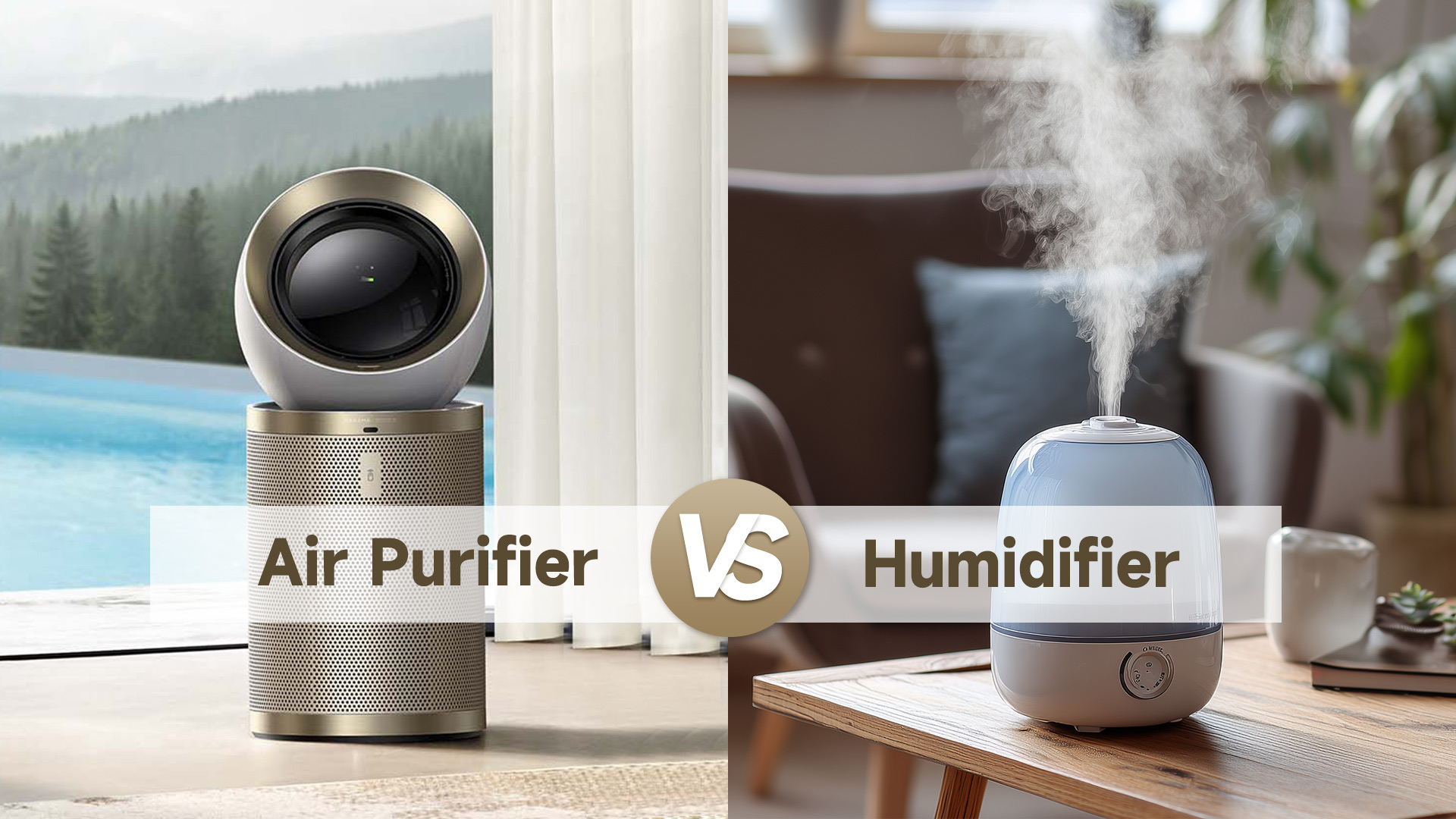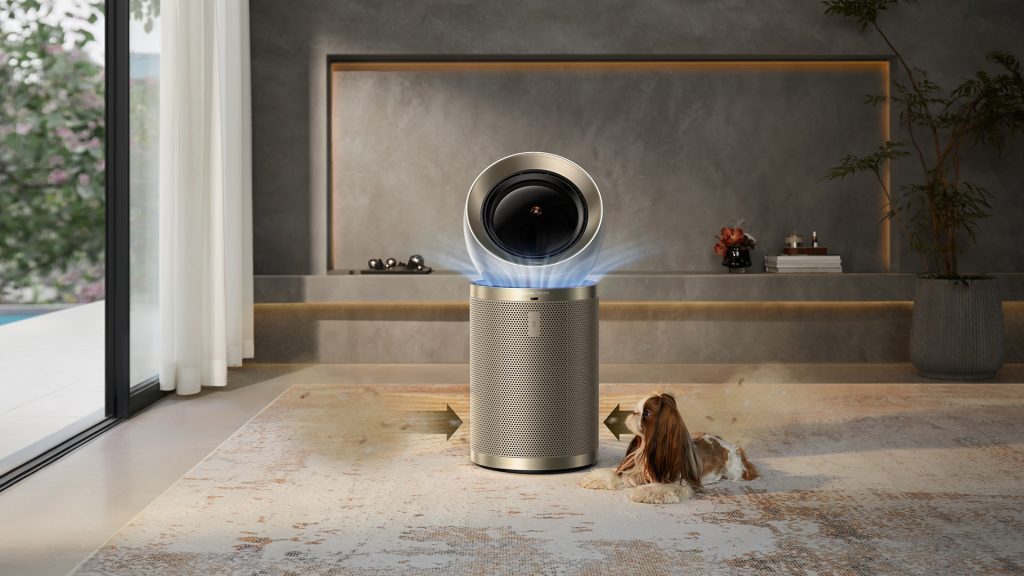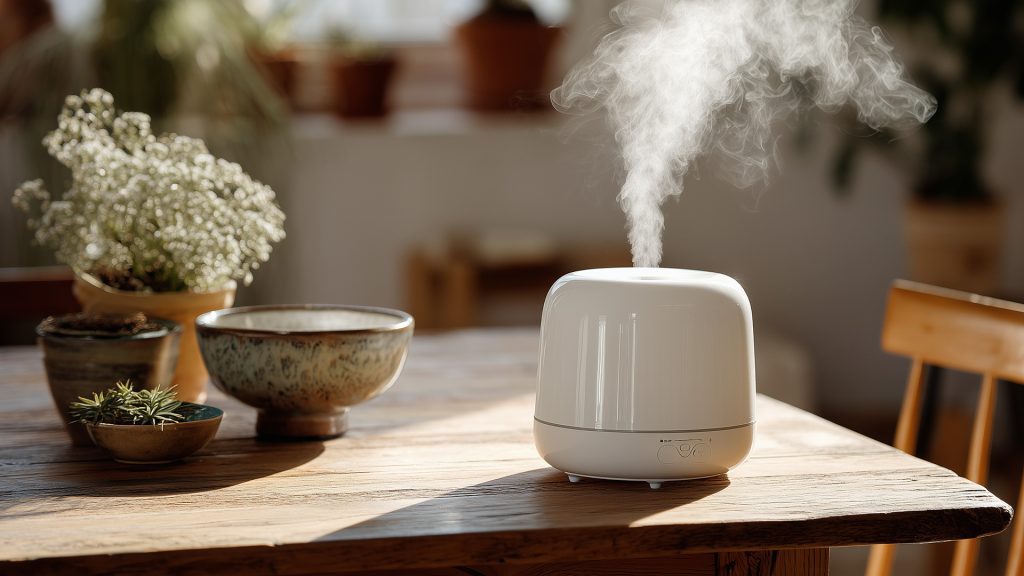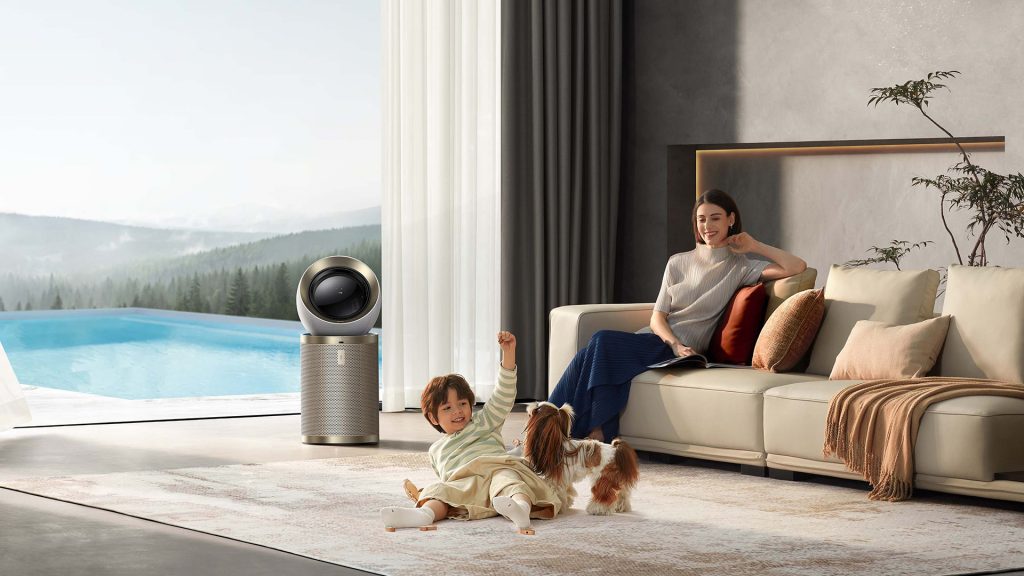
You sometimes struggle to decide whether to opt for an air purifier or a humidifier. They have different functions, but both allow you to breathe easier. Many want the fresh air in their homes to help, but many remain undecided about which is best.
An air purifier helps by cleaning the air. It removes dust, smoke, and other harmful substances in the air. A humidifier adds water to dry air. It makes the air feel less dry. Both can help you feel better, but they work in different ways. This blog will explain the difference between air purifiers and humidifier devices. It will also help you figure out which one matches your needs and why.
In this blog, you will read:
- What Is an Air Purifier?
- What Is a Humidifier?
- Key Differences Between Humidifiers and Air Purifiers
- Which Device Suits Your Needs: Air Purifier or Humidifier?
- Conclusion
What Is an Air Purifier?
Air purifiers are devices that filter air by removing airborne particles and pollutants, such as dust, pollen, pet dander, and VOCs, from the air. They are equipped with HEPA and activated carbon filters that remove up to 99.95% of pollutants.

An air purifier consists of a fan and several filters that draw in dirty air and trap contaminants. The purified air is then dispelled into the environment. Air purifiers are beneficial for health in various ways.
What Is a Humidifier?
A humidifier is a device that adds humidity and moisture to the air by releasing mist and vapor. It’s different from an air purifier, as the latter filters the air, whereas a humidifier simply adds humidity to the air without cleaning it. Humidifiers come in different categories:
- Evaporative: These humidifiers blow humid air through a moistened absorbent material via a fan.
- Ultrasonic: These humidifiers use ultrasonic vibrations to create a cool mist that is released into the air.
- Steam: These humidifiers create steam via electricity, which then cools in the unit before being emitted.

Humidifiers are beneficial in several ways.
- They help relieve skin dryness by maintaining an optimal humidity level in the air. This also helps relieve eczema.
- They treat sinus issues and relieve respiratory discomfort.
- Humid air protects wooden furniture.
- They can also reduce snoring by keeping airways moist.
Key Differences Between Humidifiers and Air Purifiers
While both air purifiers and humidifiers are good for your health, they differ a lot in their functioning. An air purifier filters the air, whereas a humidifier adds moisture to it. Below is a table highlighting the significant differences between a humidifier and a purifier.
| Feature | Air Purifier | Humidifier |
|---|---|---|
| Purpose | Removes pollutants (dust, pollen, VOCs) | Adds moisture to the air |
| Best For | Allergies, asthma, polluted areas | Dry skin, sinus issues, low humidity |
| Maintenance | Filter replacements (6-12 months, $30-50) | Weekly cleaning, distilled water |
| Health Benefits | Reduces respiratory triggers, odors | Eases dryness, snoring, congestion |
| Technology | HEPA, carbon, UV-C, smart sensors | Ultrasonic, evaporative, steam |
| Energy Use | 20-50 watts (smart models optimize) | 30-100 watts (steam models use more) |
| Room Size | Varies (check CADR for coverage) | Varies (1-3 gal. for 300-3,000 sq. ft.) |
An air purifier filters the air and traps pollutants like VOCs, smoke, dust, pollen, pet dander, etc. It is helpful for individuals with allergies or asthma triggers. A humidifier adds humidity to the air by releasing mist or steam. It is good for individuals with dry skin, eczema, or sinus issues.
Both air purifiers and humidifiers can be used simultaneously to maintain an ideal air quality inside your home. However, there are some drawbacks. For instance, a humidifier can lead to mold growth if it’s used too frequently. Moreover, an air purifier isn’t helpful if you suffer from skin dryness or related issues. Therefore, it’s important to use them to address a known problem.
Which Device Suits Your Needs: Air Purifier or Humidifier?
When to Choose an Air Purifier
You should use an air purifier if your indoor air quality is bad and you struggle with asthma, allergies, or related infections. An air purifier traps contaminants and filters dirty air. It also minimizes odors.
If you want a smart option, then look into the Dreame Air Purifiers. These have sensors that adjust based on your room’s air. They help remove very small particles from your space and help you breathe easier. These devices do not fix dry air, but they do make air cleaner and fresher.

When to Choose a Humidifier
Use a humidifier if you suffer from skin dryness, nosebleeds, or related issues. A humidifier helps moisten the air and maintains the ideal humidity level. It also helps relieve snoring by keeping your airways moist.
However, if you live in polluted cities with dry winters, you need to use both air purifiers and humidifiers simultaneously. Please note that placing both devices too close together may lead to clogged filters.
Conclusion
So, let’s recap, what’s the difference between an air purifier and a humidifier?
- Air purifier: An air purifier filters out dirty air by trapping pollutants like dust, smoke, VOCs, or pet dander.
- Humidifier: A humidifier moistens the air and increases the humidity level of the air. Both devices significantly enhance indoor air quality.
If you suffer from allergies or live in a highly polluted area, then you should invest in an air purifier. If you live in a dry climate and suffer from dryness, get a humidifier.
Clean air and soft air help you feel calm and healthy. You can find effective air purifiers that help you breathe more easily at home. Visit Dreame to find a purifier that fits your space and style.